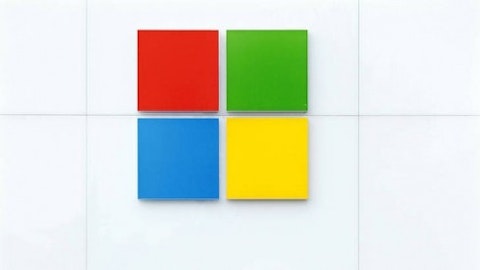The days of scanning for computer viruses is a task young ‘uns would associate with their parents, but the industry responsible for keeping the bad guys out is very much a current phenom. Mobile security, in particular, has taken on increased importance in the smartphone age. The current global market, estimated at $1.6 billion is expected to grow to $10.7 billion by 2017. And of course, China will be at the forefront of any rapid growth in the global market.
Which leads us to Qihoo 360 Technology Co Ltd (NYSE:QIHU). In the Chinese market, more than one third of Chinese people use mobile internet, and QIHOO 360 is at the forefront of providing security in this market. However, Qihoo 360 Technology’s stock price has had a relatively subdued past couple of years. After a blistering IPO in 2011, when the stock jumped 134% on its debut, it entered a lengthy hangover phase. The hangover saw the stock give up all of its IPO gain, and then some, before staging a recovery in the latter part of 2012. This recovery has taken it to a point, where it now lies primed to challenge the highs generated back during its IPO.
What has given Qihoo 360 Technology a new lease on life is solid earnings. The company has 442 million active users of its PC-based services, a gain of 62 million on the prior year, and effectively accounts for 95% of the Chinese market. Its mobile security product has 149 million users at the end of Q3. If you consider Qihoo 360 Technology’s relative penetration of the PC market and the approximate 36% penetration in the mobile security market, it’s clear where the growth opportunities lie.
Revenue was up 77% year-on-year, and 15% sequentially. Gaming was an important component of the growth, with revenue doubling over the year at $25.5 million. Again, for a mobile environment, micro-transactions within games is likely to see this sector grow.
The Doubts?
Given the company’s dominance, it has got into squabbles over unfair competition. Although this has escalated to possible government intervention, in relation to its Desktop practices. Potential Beijing intervention brings another level of uncertainty to the table. The company has also run afoul of Apple Inc. (NASDAQ:AAPL)‘s Terms of Service and was booted off the App store.
While it has a lock on the PC market, it’s not unreasonable to expect revenue to stabilize, and eventually fall. As mobile becomes the defacto norm, it will eventually eat into the revenue generated on the PC side. How the two offset each other will be interesting.
The Peers
Google Inc (NASDAQ:GOOG) has entered into an agreement with Qihoo 360 Technology to serve its ads on QIHOO Search. This is an obvious strategy by Google to go after rival search competitor Baidu.com, Inc. (ADR) (NASDAQ:BIDU). But the strategy looks to have backfired for Google with its search market share falling from 16.2% to 5%, and Qihoo 360’s rising to 10.4%.
However, the real problem is not Google, but Baidu. While growing market share is impressive, the 84% of market share owned by Baidu is not easily cracked. Not to mention, there is nothing to suggest Baidu can’t squeeze into Qihoo 360’s existing search share. Then again, it could all go sour if Beijing impose sanctions (and the nature of those sanctions) on Qihoo 360.
The leverage this brings for Baidu’s expansion into the mobile space is considerable. Baidu has reported struggles to monetize its mobile traffic, but it still managed to double its mobile revenue year-on-year. Chinese mobile ad spend is expected to grow from $100 million in 2011 to $780 million in 2016, and the likelihood is Baidu, and not Qihoo 360, will gain the most benefit from this.
In order to tackle Baidu, Qihoo 360 is making its own power play with an agreement with Sohu.com Inc. (NASDAQ:SOHU). What’s bizarre about this potential arrangement is Qihoo 360’s prior attacks on Sohu services, deeming them “unsafe“, so presumably these indiscretions will be overlooked in favor of a broader agreement. Personal animosity is playing a key role in the arrangement, but whether Qihoo 360 and Sohu together have sufficient mojo to challenge Baidu in search remains to be seen. The likelihood is that Baidu will simply flick them aside given its dominance. Despite this, Baidu has already launched an offensive by going after Qihoo 360’s PC security business, with “Baidu PC Faster,” although in the recent conference call there was no mention as to how this sector was performing for it.
Then there is Microsoft Corporation (NASDAQ:MSFT). Microsoft offers free Desktop antiviral software and directly competes with Qihoo 360 in the PC environment. If imitation is the highest form of flattery, then Qihoo 360 has it in spades. One of the citations received from the Chinese government was implying its anti-viral software was an official Microsoft patch. Then there is the browser mimicry; a quick visit to the Qihoo 360’s home page shows a prominent green Internet Explorer icon, which is in fact its own browser, not Microsoft’s. If that’s not enough, whatever warnings the company has been given by the Chinese government to change the icon have not been heeded…
Outcome
It’s an odd one this. Qihoo 360 has done the hard part in establishing its dominance in the area of internet and mobile security. The problem is that this power looks to have gone straight to the head. And up until recently, these actions have gone largely unpunished. Whether the Chinese government will let it continue to do so is up for debate. A more likely outcome is a slap on the wrist and a hefty fine (at least until the next time). How much pressure is been excerpted from the outside, and how much the Chinese government will want to act on that pressure, is another story. Certainly, none of this has hurt the stock’s price yet. What will really set the cat amongst the pigeons is if the stock goes on to exceed its IPO highs, then it will be hard to ignore and the story will only become larger.
The article A Chinese Stock Legend in the Making originally appeared on Fool.com and is written by Declan Fallon.
Copyright © 1995 – 2013 The Motley Fool, LLC. All rights reserved. The Motley Fool has a disclosure policy.






